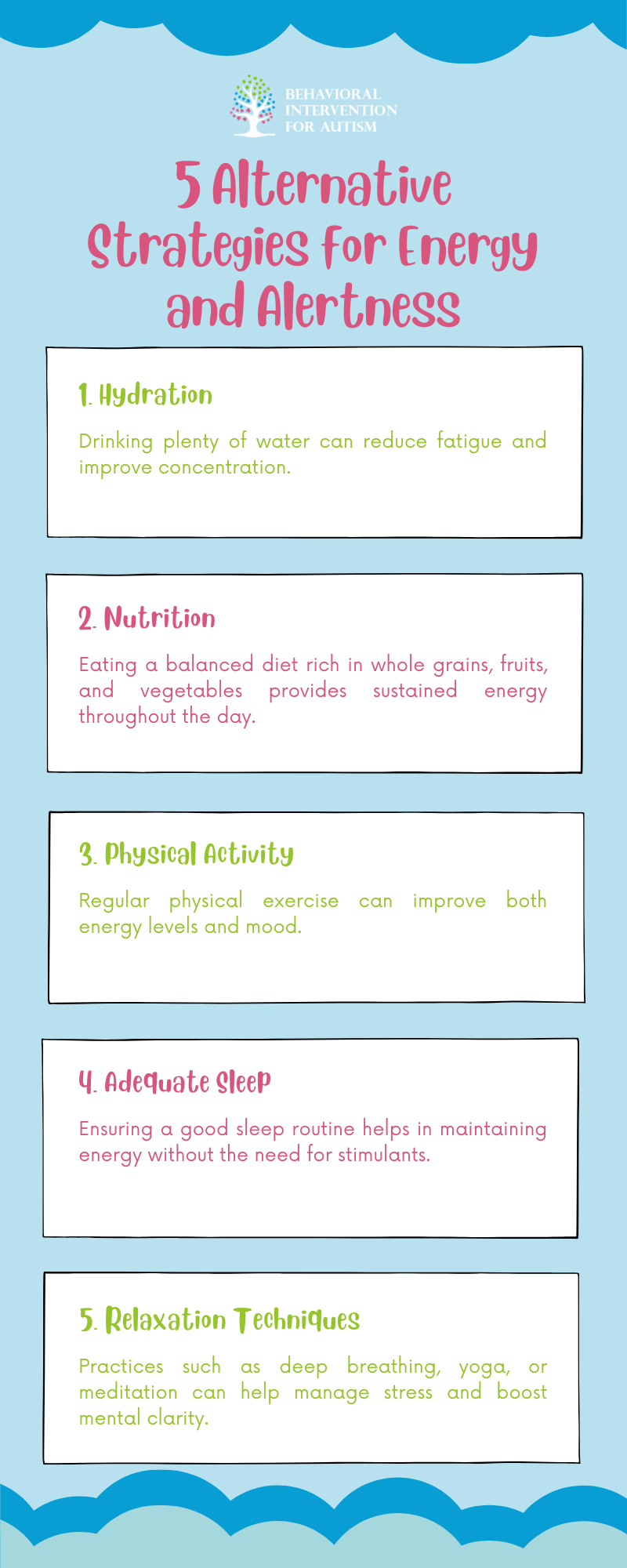
Table of Contents
Autism Spectrum Disorder (ASD) is a complex developmental condition that affects communication, behavior, sensory processing, and sometimes food issues. One area of interest for many parents and caregivers is how caffeine, a common stimulant, interacts with individuals on the autism spectrum. Understanding this connection can help manage and mitigate potential impacts on behavior and overall well-being.
Exploring the Link Between Autism and Sensory Processing
Individuals with autism often experience differences in sensory processing. They may be hypersensitive or hyposensitive to various stimuli, including lights, sounds, and tastes. This means that what might be a mild stimulus for one person could be overwhelming or underwhelming for another on the spectrum.
The sensory processing differences can significantly influence how individuals with autism react to caffeine. Caffeine is known to stimulate the central nervous system, potentially heightening sensory responses. For someone with heightened sensory sensitivity, this can lead to increased anxiety, agitation, or sensory overload.
Sensory sensitivity is a common characteristic of Autism Spectrum Disorder (ASD), with individuals experiencing different reactions to sensory stimuli. Those who are hypersensitive may feel overwhelmed, anxious, or agitated in response to certain sensory inputs, such as loud noises or bright lights. On the other hand, individuals who are hyposensitive might seek additional stimulation or show a reduced response to sensory experiences, such as not reacting to pain or temperature changes. Understanding these reactions is crucial for creating supportive environments that address the sensory needs of individuals with ASD.
The Role of Caffeine Sensitivity in Individuals with Autism
Caffeine sensitivity refers to how an individual’s body responds to caffeine. In individuals with autism, this sensitivity can be more pronounced. Caffeine can exacerbate sensory sensitivities, leading to more intense behavioral and emotional reactions.
Understanding caffeine sensitivity in the context of autism involves observing how caffeine affects the individual. Common reactions to caffeine in individuals with autism may include:
- Increased restlessness
- Difficulty focusing
- Elevated levels of anxiety
- Disturbed sleep patterns
Understanding how caffeine affects individuals with Autism Spectrum Disorder (ASD) can be complex, as responses differ greatly from one person to the next. While some individuals may experience only mild effects, others could show noticeable changes even with small amounts. Below is a guide to help recognize potential reactions based on varying caffeine intake levels:
Caffeine Intake (mg) | Potential Reactions in ASD |
0-50 | Minimal to moderate reaction |
50-100 | Increased restlessness, mild anxiety |
100-200 | Significant restlessness, difficulty focusing |
200+ | High anxiety, disturbed sleep |
By closely monitoring the intake of caffeinated beverages and foods, caregivers and individuals can better manage and understand the relationship between autism and caffeine sensitivity.
Impact of Caffeine on Individuals with Autism
Examining the effects of caffeine on people with autism spectrum disorder (ASD) can provide crucial insights for caregivers. The impact of caffeine can vary widely among individuals. Here, we explore how caffeine affects behavior, sensory reactions, cognitive functions, and emotional states in those with autism.
Behavior and Sensory Reactions
Caffeine, a stimulant, can have various effects on behavior and sensory processing. In individuals with autism, these effects may be more pronounced due to differences in sensory integration. Some common behavioral and sensory reactions include:
- Increased Hyperactivity: Caffeine can amplify hyperactive behavior, making it hard for individuals to focus.
- Heightened Sensory Sensitivity: Individuals may become more sensitive to lights, sounds, and tactile stimuli.
- Sleep Disturbances: Caffeine may interfere with sleep patterns, affecting the overall daily routine.
Cognitive and Emotional Effects
Caffeine can also influence cognitive functions and emotional states. Individuals with autism may experience unique responses in these areas:
- Anxiety and Irritability: Caffeine can elevate anxiety levels and irritability.
- Attention and Focus: While caffeine might improve focus in some, it can cause overstimulation in others, worsening attention span.
- Mood Fluctuations: Mood swings may become more frequent due to caffeine’s stimulating properties.
Understanding how caffeine affects behavior, sensory reactions, cognition, and emotions in individuals with autism can offer valuable guidance for managing diet and lifestyle choices. Being aware of these impacts allows caregivers to make informed decisions about caffeine intake and its potential influence on daily life.

Managing Caffeine Sensitivity
Effectively managing caffeine sensitivity in individuals with autism requires a strategic approach to monitor and adjust their caffeine intake, as well as exploring alternative strategies for maintaining energy and alertness.
Monitoring Caffeine Intake
To effectively manage caffeine intake for individuals with autism who are sensitive to it, it’s important to be aware of the caffeine levels in different foods and drinks. Understanding where caffeine may be hidden can help caregivers make informed decisions and avoid unintentional overconsumption. Here’s a breakdown of caffeine content in common sources:
Source | Caffeine Content (mg) |
Coffee (8 oz) | 95 |
Black Tea (8 oz) | 47 |
Soda (12 oz) | 33 |
Energy Drink (8 oz) | 77 |
Chocolate (1 oz) | 12 |
Keeping a daily log of caffeine consumption can help track intake and identify any patterns related to behavioral and sensory reactions. Adjusting the amount and timing of caffeine can mitigate any adverse effects. For some individuals, it might be necessary to reduce or eliminate caffeine from their diet.
5 Alternative Strategies for Energy and Alertness
For those with caffeine sensitivity, finding alternative ways to boost energy and maintain alertness is crucial. Below are several strategies that can effectively substitute for caffeine:

These methods help individuals with autism manage caffeine sensitivity while maintaining optimal energy and alertness.
Research and Studies
Current research on autism and caffeine sensitivity has produced mixed results. Studies suggest that individuals with autism spectrum disorder (ASD) may have heightened sensitivities to caffeine, likely due to differences in sensory processing and neurotransmitter function.
This increased sensitivity may worsen behavioral and cognitive symptoms, including heightened anxiety, irritability, and sleep disturbances in individuals with ASD. Understanding how caffeine interacts with the biochemical processes, metabolism, and neural pathways in those with autism offers valuable insights into these effects.
Future research aims to explore the underlying mechanisms of caffeine sensitivity in autism, including long-term studies and genetic factors that may influence caffeine’s impact. Another focus is on the interaction between caffeine and autism treatments, as well as identifying safe caffeine thresholds and dietary guidelines to manage sensitivities.
These research avenues hold potential for developing personalized strategies that can improve the quality of life for individuals with autism by managing caffeine sensitivity and optimizing their overall well-being.
Support and Resources
Supporting individuals with autism in managing caffeine sensitivity can be significantly improved by seeking professional guidance and engaging with autism communities. Professional advice from healthcare providers such as doctors, dietitians, and occupational therapists can offer tailored strategies to address this sensitivity effectively.
Doctors can provide insight into how caffeine sensitivity interacts with autism from a medical perspective. Dietitians help design dietary plans that consider caffeine sensitivity and suggest suitable alternatives, while occupational therapists offer strategies to cope with sensory processing challenges related to caffeine intake.
Engaging with autism communities also plays a key role. These communities provide a supportive environment where individuals and caregivers can exchange experiences and advice. Whether through local support groups, online forums, nonprofit organizations, or parent networks, these resources offer both practical tips and emotional support.
Connecting with professionals and autism communities helps individuals and caregivers feel supported, reduce isolation, and improve overall well-being while managing caffeine sensitivity.
Understanding Caffeine Sensitivity in Autism
Caffeine sensitivity can be a common concern for individuals with autism, as it may have a stronger or more pronounced effect compared to others. For some, even small amounts of caffeine can lead to increased anxiety, difficulty sleeping, or heightened sensory sensitivities. Recognizing these sensitivities early on can help parents and caregivers manage potential issues and support the individual’s well-being. Behavioral Intervention For Autism offers ABA therapy in Florida, focusing on personalized approaches to help individuals navigate sensory challenges like caffeine sensitivity. Our team works closely with families to develop effective strategies that improve quality of life. If you’re looking for expert guidance, feel free to contact us today and let us support your journey.
- 9 Common Obsessions of Children With Autism You Should Know - February 25, 2025
- What is Neurodiversity? A Guide to Embracing Differences - February 25, 2025
- Understanding Hyperfocus in Autism: What It Means and Why It Happens - February 25, 2025
